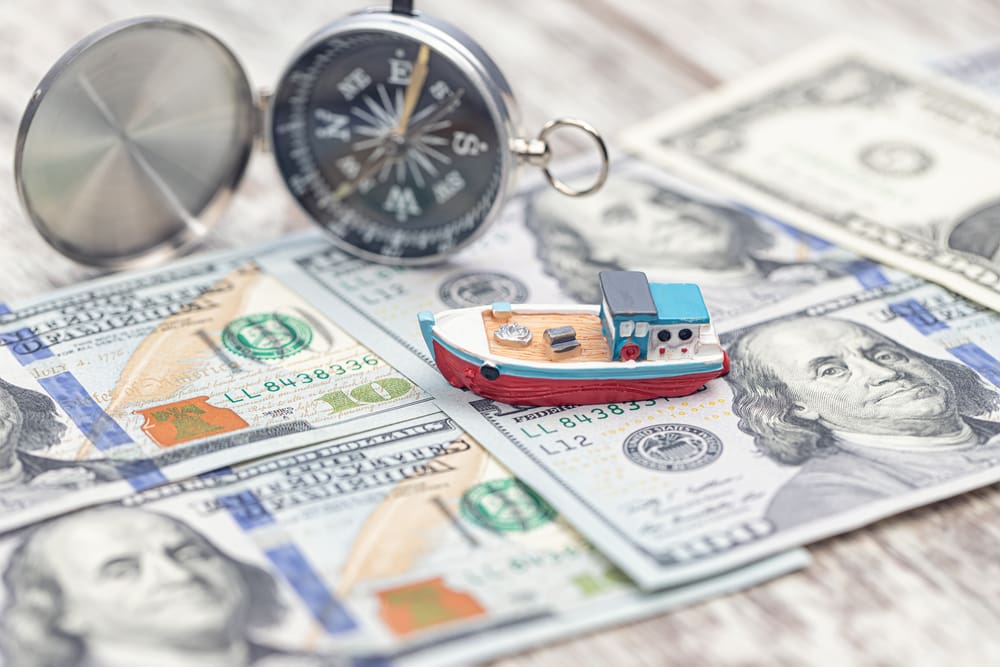You have found a boat that you absolutely adore, one with which you can foresee yourself voyaging to every corner of the map. To make that dream come true, you need to secure a boat loan first. Being that a boat is a kind of vehicle, a boat loan should be as unproblematic as an auto loan, right?
Let’s put it this way: Financing a boat is a bit more complicated than you originally thought. That’s why we’re going to give you the whole scoop on how boat loans work and how to apply for one.
Different Kinds of Boat Loans
Similar to buying a new or used car, you have a couple of financing options available to you. These options include the traditional secured and unsecured loans. Here are some details on these kinds of boat loans:
Secured Loan
Choosing a secured boat loan is the safest option. As you may already be aware, a secured loan needs some kind of collateral as protection for the lender. Typically, offering up some kind of collateral grants you a lower interest rate and a higher loan limit.
In this case, the collateral is your boat. Should you fail to make the payments, the lending company reserves the right to claim your boat.
Unsecured Loan
Did you have a perfect credit score? Then an unsecured boat loan may be more desirable. This is a loan that gives you added flexibility for how you use the money. The downside is having to pay a higher interest rate. However, you won’t need to use your boat or home equity as collateral for the loan.
But if you do fail at repaying the loan, the lender is going to take you to court. Plus, unsecured loans can damage your credit score should you be unable to pay.
Second Mortgage
Don’t like the way either of the loan options sound? You have a third but less common choice: a home equity loan also called a second mortgage. In this case, you are using the value of your home as collateral instead of your boat. While home equity loans often grant a longer repayment term, you do have a higher interest rate. Additionally, a home equity loan is only available if your home has a high enough value to cover the cost of the boat.
The stakes are high with this one, though. Default on the loan and your home could be taken away.
How Boat Financing Works
A boat loan works like most loans: You receive a set amount of money from a lending organization for a big purchase. Your credit score determines how much you can receive and the repayment terms. For example, perfect credit (781+) means you get the best interest rates and require the lowest down payment on your new vessel. Meanwhile, poor credit (580 and below) greatly reduces your chances of securing a loan, and you will need to provide a large down payment. Other factors aside from your credit score may also affect your approval amount and terms, such as liquidity, as well as debt to income ratio.
The length of the repayment period and interest rate are influenced by the boat make and model, as well. In that light, boat loans and auto loans are similar.
Where to Find a Boat Loan
The terms of the loan can change depending on what kind of organization you receive the loan from. You are not limited when it comes to choosing a loan provider, so consider all of your options first.
Here are some of the places where you can find boat loans:
- Dealership financing. If you plan on purchasing a new boat, the dealership may have financing options through their chosen bank. About 80% of boat loans come straight from the dealership.
- Marine brokers. Some brokers work with both the buyer and seller to secure loans, take payments, and negotiate a satisfactory sale. If you plan on buying from a broker, ask what options they may have available or if they have any recommendations.
- Banks and credit unions. Another 20% of boat loans are provided by a financial institution or organization. Many offer competitive rates and discounts if you are already a customer. Some online loan services may also take those with less than ideal credit scores.
When in doubt, shop around! Compare interest rates and loan amounts. You will find that there are many lenders out there, so one is sure to match your needs.
Things to Consider When Applying for a Boat Loan
When you settle on a boat loan, be sure to consider some factors:
The Loan Terms
Typical loan rates are between 4-7%, depending on your credit score. Factor in the regular repayment term of 15-20 years, but the greater the loan, the longer the term. Also, you can anticipate a down payment of 15-20% of the boat’s overall cost. By knowing these terms and percentages, you can calculate the general down payment and factor that into what you need for a loan.
You can also put a larger down payment on the boat to decrease the monthly cost.
Fixed vs Adjustable Rates
Another thing you need to consider is the interest rate. Most people want to lock in a great fixed rate so you can budget accordingly. That said, you might be able to make use of an adjustable interest rate, especially if you get a special introductory rate.
How to Apply for Boat Financing
Have you ever gotten an auto loan? Then you know what to expect. Find yourself a decent lender—either online or in-person. You will have to provide some information to secure the loan, such as the price of the boat; the boat’s make, model/age; and any personal info about your employment, assets, and debts.
Financing a boat also often results in a hard credit check, which may slightly lower your credit score. It takes a few days to get approval. Once you have approval, congratulations—you’re ready to buy your boat!
Conclusion
Boat loans are commonly used for boat purchases, but how boat financing works isn’t always discussed. Hopefully, you now know some of the basics of boat loans and feel confident searching for the best options.
Let us help you with your boating journey! Our team here at Yacht Brokers of Annapolis has plenty of experience helping people buy and sell their boats. Give us a call at 410-206-2755 to schedule a consultation.





